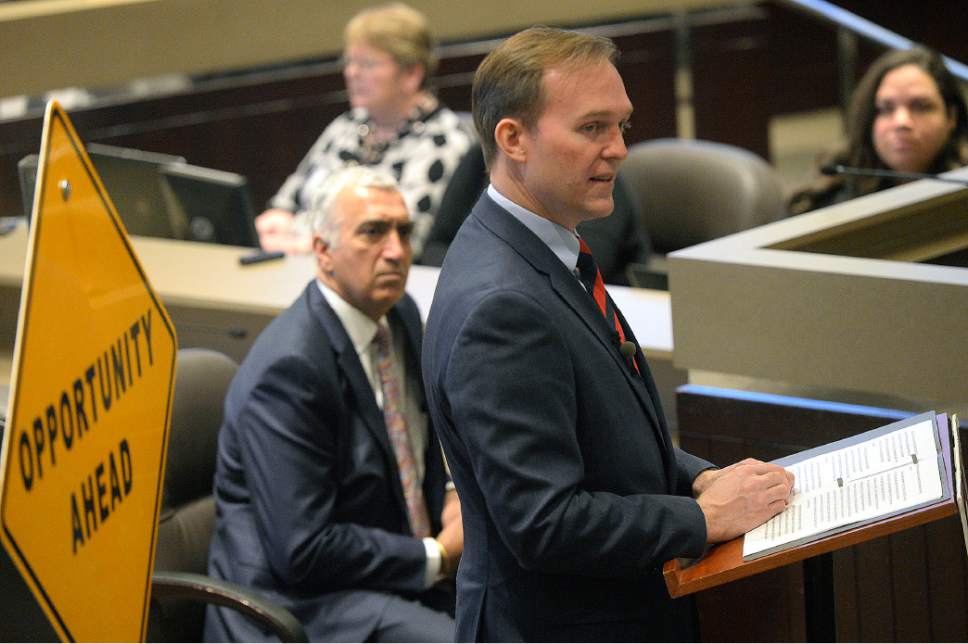This is an archived article that was published on sltrib.com in 2017, and information in the article may be outdated. It is provided only for personal research purposes and may not be reprinted.
"If this is going to be a Christian nation that doesn't help the poor, either we have to pretend that Jesus was just as selfish as we are, or we've got to acknowledge that He commanded us to love the poor and serve the needy without condition and then admit that we just don't want to do it."
— Stephen Colbert
Ben McAdams is right. The Utah Legislature's Justice Reinvestment Initiative has so far resulted in precious little justice because there has been no serious initiative to actually invest in it.
And so the recently re-elected mayor of Salt Lake County has a painful but accurate point to make about what should happen if the state isn't willing to follow through with the fiscal implications of its promise: Give up, and start warehousing low-level drug offenders in expensive prison beds again, because that's better than condemning them — and the community around them — to a life on the street.
Any thought that the federal government might contribute significantly to the cost of following through on the plan is basically dead. That's because the same Utah politicians who were so proudly patting themselves on the back for passing the JRI two years ago also trash talked and refused to participate in the Affordable Care Act's Medicaid expansion offerings in any meaningful way.
An insultingly small plan to draw down some of that ACA money was never approved by the Obama administration. And the new regime seems to speak of that law only in its division over whether to abolish it now or later.
That means Utah — the Legislature, the governor, the courts — will have to come up with the money itself.
The initiative was a good idea, and received support from all corners. The valid theory was that it would, in the long run, be both more humane and less expensive to steer many of the nonviolent offenders who so often wind up in prison to community-based treatment services instead.
But the job of setting up those community-based services has, so far, been left to the communities. Most obviously the community of Salt Lake City and Salt Lake County, which are already wrestling with a burgeoning homeless population, which serves as a magnet for an appalling number of drug dealers, which has overloaded the county jail, and which boosts the number of drug-addicted, mentally ill souls adrift on the streets.
With that image of homelessness, it's no wonder that neighborhoods considered as sites for new homeless resource centers are up in arms, out of fear that the crime and fear that now surround the city's main homeless service providers will only move to their back yards.
A fully funded JRI would have done so much to help with the homelessness issue in Salt Lake County, not only in fact but in image, shifting the face of homelessness from that of the undesirable crackhead to the more sympathetic single mother.
Every member of the Legislature who took pride in passing the Justice Reinvestment Initiative now own the shame of the fact that, to all appearances, they didn't really mean it.



